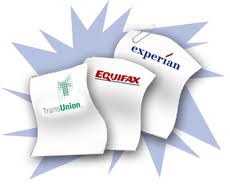Things To Know About Your Credit Rating
Consumers have been hearing a lot about the importance of keeping tabs on their credit ratings. After all, a good score can make a difference of around, say, $500 in monthly payments on a $250,000 mortgage, and also can mean much lower credit-card rates. But what’s considered a good credit score, anyway? And who’s actually evaluating you? Here are the answers to these and other common questions about your credit rating.
How is a credit score calculated?
A credit score is a value assigned to several criteria used in making lending decisions. Criteria include the amount you owe on non-mortgage-related accounts such as credit cards, your payment history and credit history. Scorers take this information from your credit report and plug it into formulas that calculate a value representing the amount of risk you pose to a lender. That value takes into account the track record of other consumers with similar credit profiles. By looking at this value, or score, lenders are able to roughly gauge whether it’s a good idea to extend you credit. Fair Isaac calculates the widely used FICO credit score on a scale ranging from 300 to 850 the higher, the better. It is used nationwide by lenders to judge credit worthiness. The score calculate generally used information from one of the three main credit bureaus: TransUnion, Experian and Equifax. It’s possible there are discrepancies among information held at each of the bureaus that could affect your score and the interest rate you receive.
What else affects my chances for qualifying for a loan?
A credit score is just one component of the credit evaluation. This is especially so in the case of mortgages and car loans. In examining these types of applications, a lender will look beyond your raw credit score to scrutinize your payment history, among other things. For instance, the fact that the late payments on your credit report were on a small credit card (as opposed to a mortgage) could work in your favor. Lenders also take into account such factors as your income and earning potential, both indicators of your ability to repay a loan. Two borrowers with above-average FICO scores of 660 can get different interest rates, based on their existing debt burden and ability to meet required payments based on their income.
Is the score treated the same for all kinds of loans?
Generally, no. A mortgage loan, by virtue of its size and long repayment terms, will usually require you to have a higher score to qualify for a favorable rate than, for example, a credit card. But the nature of the loan may also play a role. For instance, a borrower with a low credit score applying for a 15 year mortgage with a 25% down payment may qualify for a better rate than someone applying for a one year adjustable rate mortgage. Mortgage lenders will typically look at all the risks involved before deciding on a rate. A lender whose loan portfolio has a high concentration of risky clients may require you to have a higher score to qualify for a prime interest rate than a lender with relatively lower risk in its portfolio. So it’s possible that given a particular score, you might get a prime rate with one lender, and get a less favorable rate with another.
What can I do to improve my score?
It’s a good idea to make sure that the data each bureau has on you are consistent and up to date by ordering a copy of your credit report about once a year and disputing any inaccuracies. You also should be aware of what affects your score to help minimize the damage you can potentially do to it. People tend to get nervous when they receive credit card solicitations in the mail. However, scorers treat these solicitations as spot inquiries which do not affect your score. Whenever you apply for credit on the other hand it’s treated as a “hard inquiry” that’s factored into your score. Too many inquires over too short a time can have a negative impact. But scorers make special provisions for mortgage and car loans inquiries because people tend to shop around more for these products. Overall though credit inquiries account for only about 10% of the total score. Also keep in mind that the main components of the score are your payment history and the amounts you owe. A bankruptcy filing can remain on your credit report for as long as 10 years and foreclosures can “significantly lower” your score. You should avoid taking on more credit than you can handle. Late payments will also work against you so it is important to make all loan payments on time even if it means paying the minimum balance. Ideally you should avoid “maxing out” your credit lines and strive instead to maintain low balances. This will improve your score over time because people owing smaller amounts on their credit accounts are viewed as having a lower repayment risk than those who owe more. By carefully managing your credit it’s possible to add as much as 50 points in a year to your score. There is nothing that you can do to your credit from which you can’t recover.
How much should I worry about my score?
Not all that much unless you have an especially troubled financial history. Much of the current anxiety over credit scores stems from the public’s misunderstanding of the way in which these numbers are used and factors that affect them. People spending a lot of time and money trying to modify their scores when it wasn’t necessary for them to get preferential interest rates.
Found at: Mortgage101




